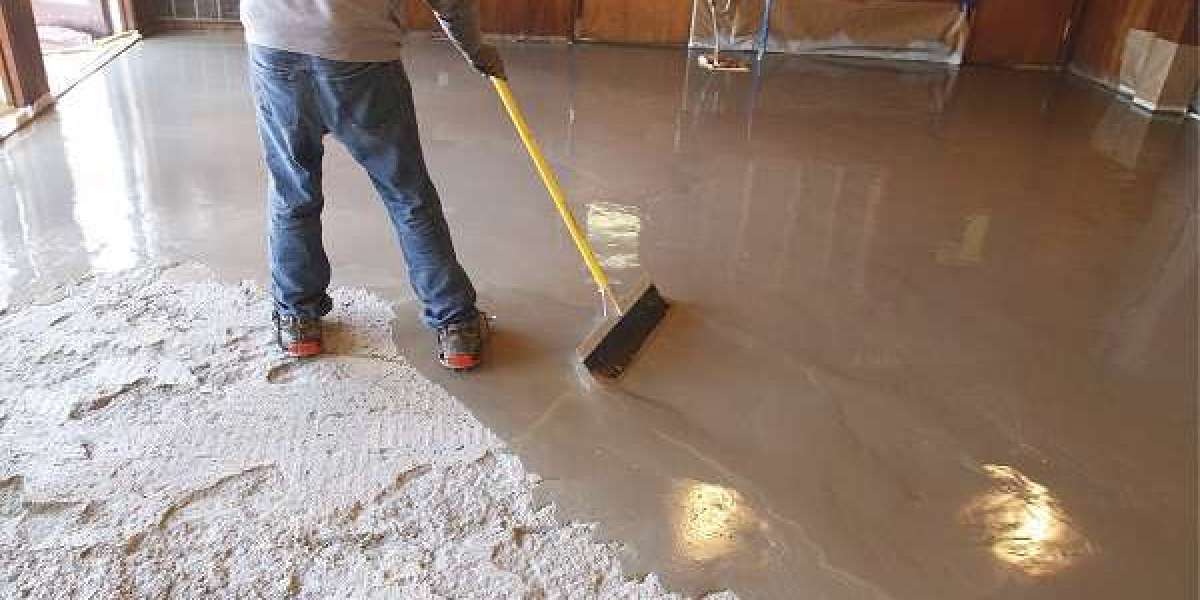Achieving a smooth and level surface is crucial for various construction and renovation projects, whether it's for flooring installations, preparing subfloors, or creating even surfaces for industrial applications. Traditional methods of leveling surfaces can be time-consuming, labor-intensive, and prone to imperfections. However, the advent of self-leveling technology has revolutionized the construction industry, offering a more efficient, precise, and cost-effective solution. In this blog, we explore the wonders of self-leveling and its applications in achieving flawless and even surfaces for a variety of projects.
- Understanding Self Leveling:
Self-leveling compounds are specialized materials designed to create smooth and level surfaces without the need for extensive manual labor. These compounds have a high flowability that allows them to spread and settle evenly across a surface, filling in gaps, voids, and imperfections to achieve a flat and uniform result.
- Applications in Flooring:
Self-leveling is widely used in flooring installations to create a level base for various floor coverings, such as tiles, hardwood, laminate, and vinyl. By pouring the self-leveling compound over the subfloor, installers can ensure that the surface is even and ready for the flooring material, reducing the risk of uneven tiles or squeaky floors.
- Preparing Subfloors:
In renovation projects or when replacing old flooring, self-leveling compounds are used to prepare uneven or damaged subfloors. By pouring the compound over the subfloor, it fills in any depressions and levels out the surface, ensuring a smooth and stable foundation for the new flooring.
- Industrial Applications:
Self-leveling compounds find applications in industrial settings, especially in areas where smooth and even surfaces are critical for machinery or equipment. These compounds can be used to level concrete floors in factories, warehouses, and other industrial facilities, providing a safe and reliable base for heavy machinery and operations.
- Time and Cost Savings:
Self-leveling compounds significantly reduce the time and labor required for surface leveling compared to traditional methods. Since the compounds are self-spreading, they eliminate the need for extensive manual labor, which translates to cost savings and faster project completion.
- Precision and Quality:
Self-leveling compounds provide a high level of precision and consistency in achieving level surfaces. This ensures a high-quality finish, free from imperfections such as lumps, bumps, or unevenness.
- Versatility and Adaptability:
Self-leveling compounds are versatile and can be used on a variety of substrates, including concrete, wood, and existing flooring materials. Their adaptability allows them to be used in a wide range of construction and renovation projects.
Conclusion:
Self-leveling technology has revolutionized the construction industry by offering an efficient, precise, and cost-effective solution for achieving flawless and level surfaces. From flooring installations to subfloor preparation and industrial applications, self-leveling compounds provide a high-quality finish that saves time, labor, and costs. With their versatility and adaptability, self-leveling compounds have become an essential tool in creating smooth and even surfaces, ensuring a stable foundation for various projects. Embrace the wonders of self-leveling and experience the benefits of seamless and flawless surfaces that enhance the aesthetics and functionality of your construction and renovation endeavors.








